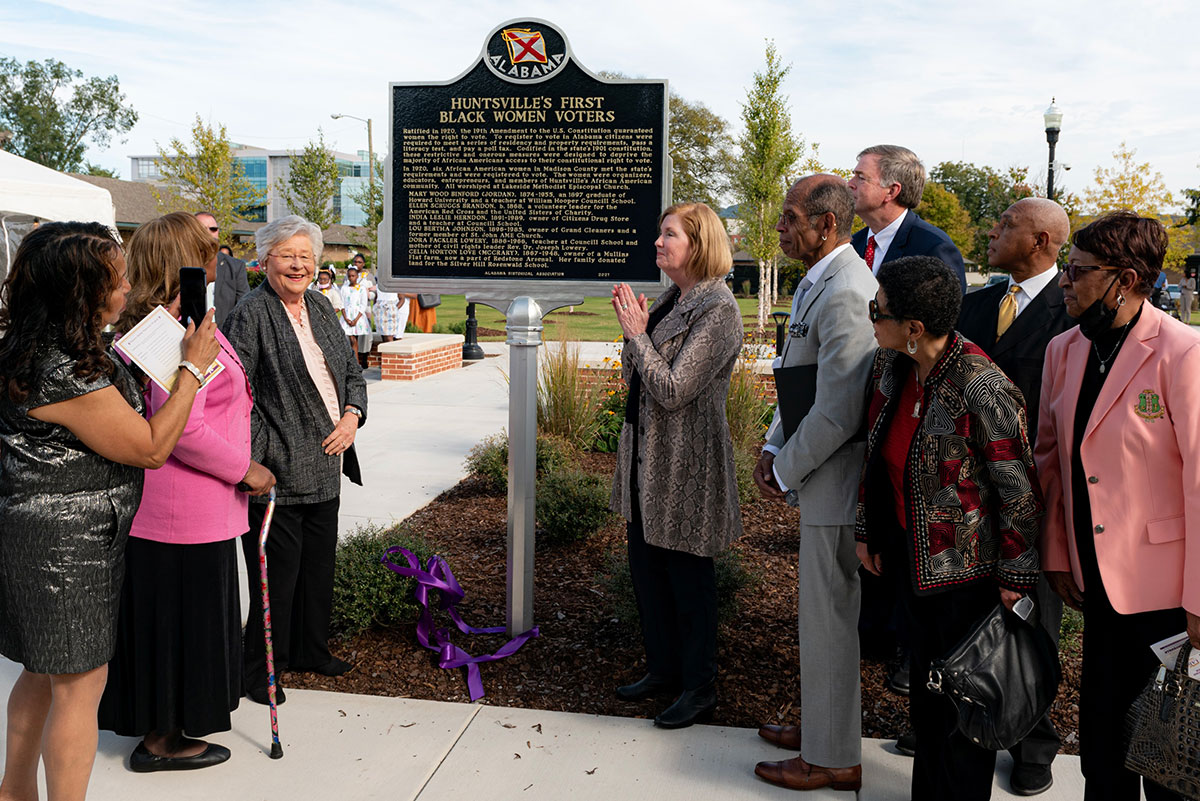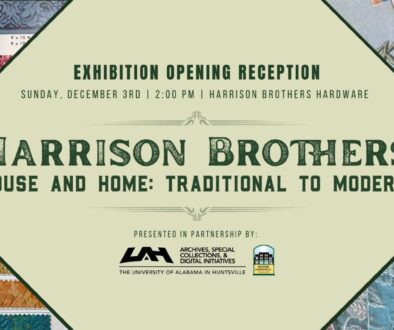Justice for the Johnsons
When Lou Bertha and Shelby Johnson sued the City of Huntsville in 1946 over a zoning dispute, they showed that it was possible for a Black business owner to fight City Hall in the Jim Crow South . . .and win!
The Johnsons were an American success story. In 1920, they founded Grand Shine Parlor, a combination shoe-shine parlor and dry cleaning shop that well-dressed Huntsvillians trusted with their suits, dresses, and furs. In 1946, the couple purchased a lot on Franklin Street to build a modern dry cleaning plant with state-of-the art equipment. When the City of Huntsville placed zoning restrictions on the property that stopped their project, the Johnsons didn’t accept the loss and walk away. Instead, they hired a lawyer. They filed appeals. And they pursued justice all the way to the Alabama Supreme Court.
And they won.
“Justice for the Johnsons: How a Black-Owned Business Fought City Hall and Won” is the second exhibition in our series exploring the transformative power of Black entrepreneurship in Huntsville during the early twentieth century. “Justice for the Johnson” joins “Brick by Brick: The Legacy of Henderson and Daniel Brandon” exhibition in the Historic Huntsville Museum. Daniel and Ellen Brandon were mentors to Lou Bertha and Shelby Johnson. Along with highlighting the accomplishments of each family business, the two exhibitions show how Black leaders, male and female, advocated for their Constitutional rights and challenged Jim Crow.
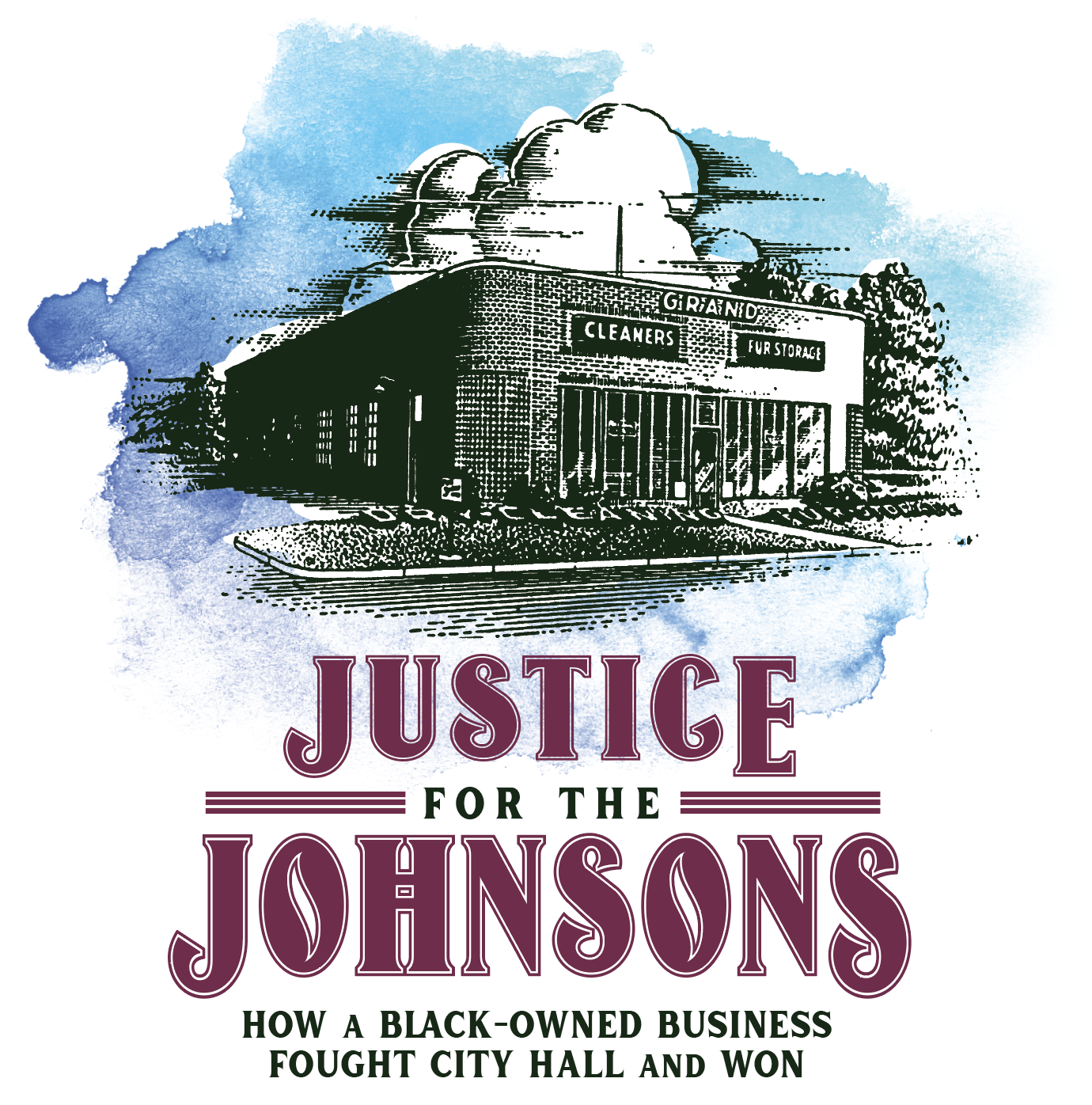
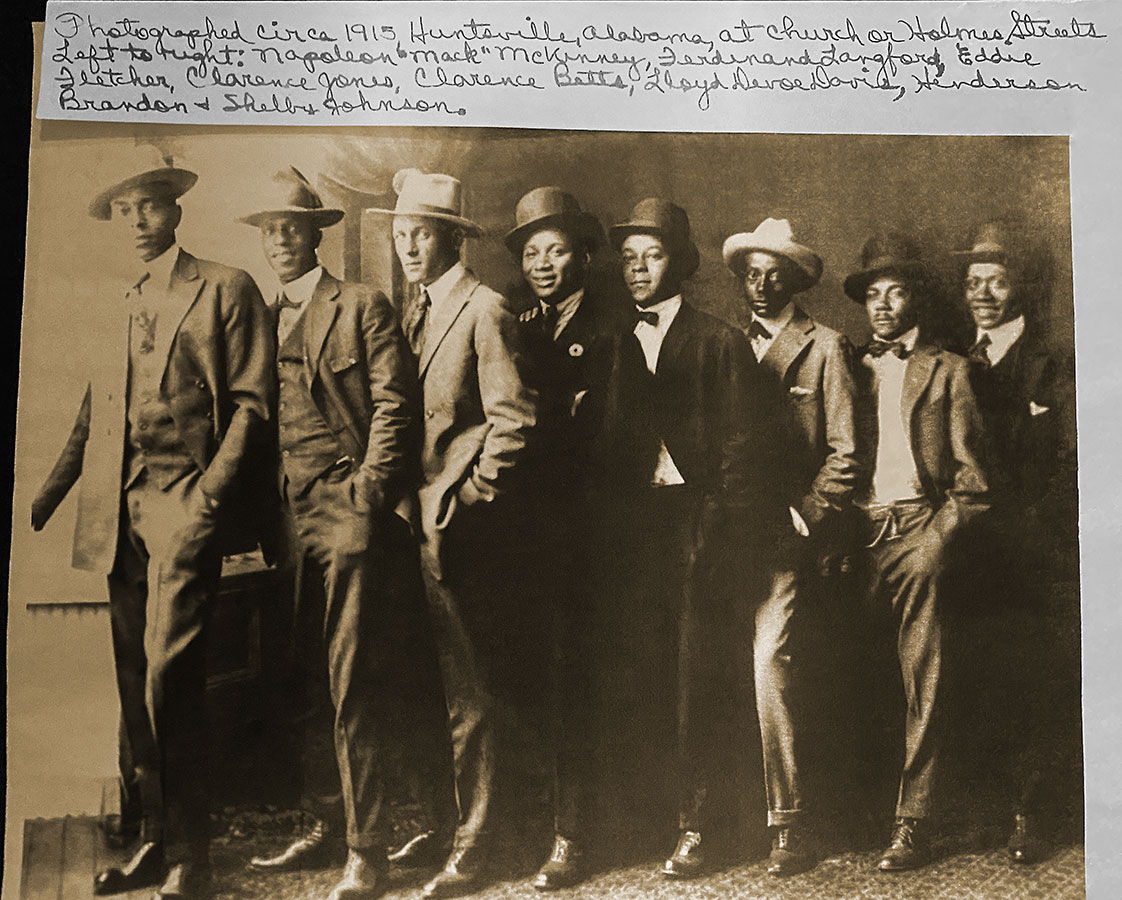
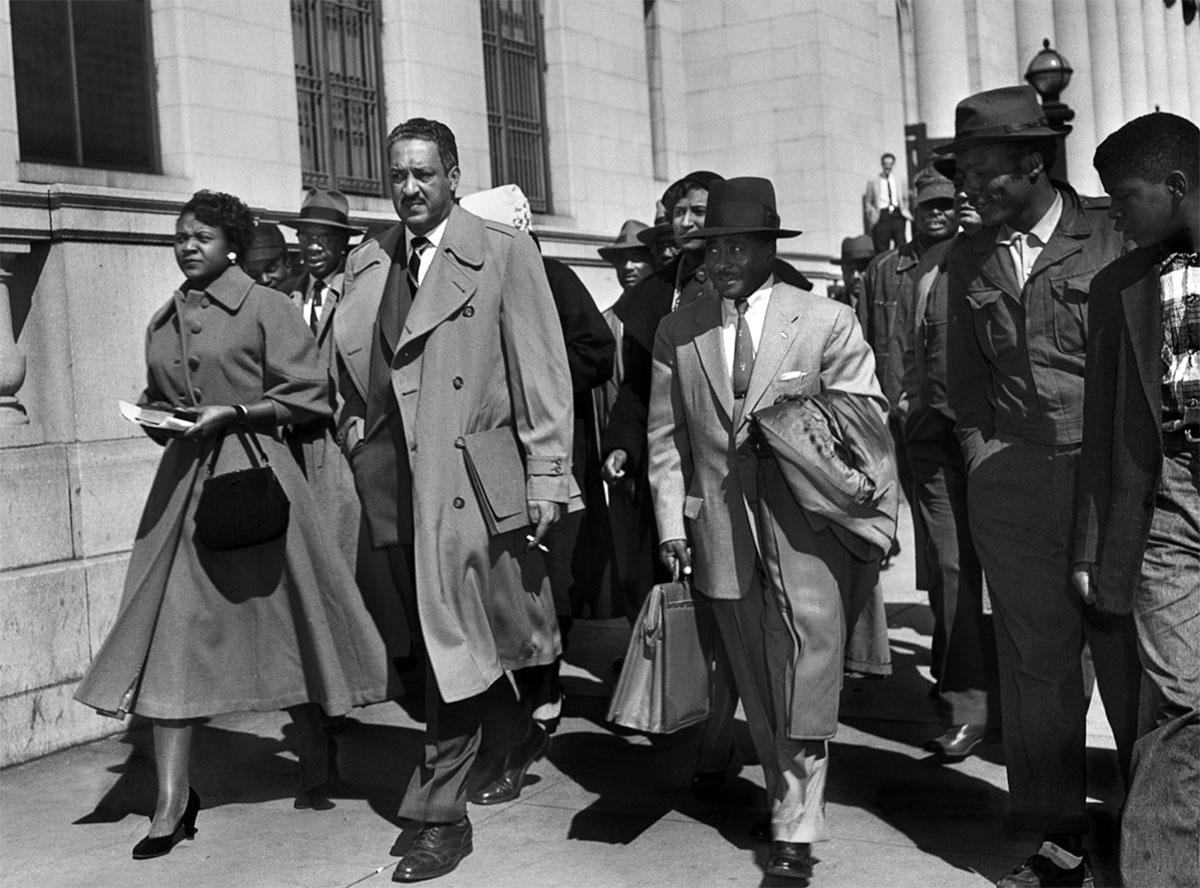
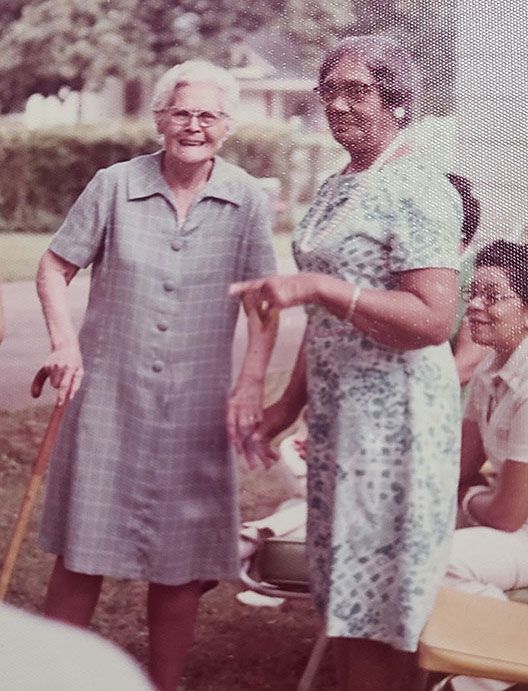
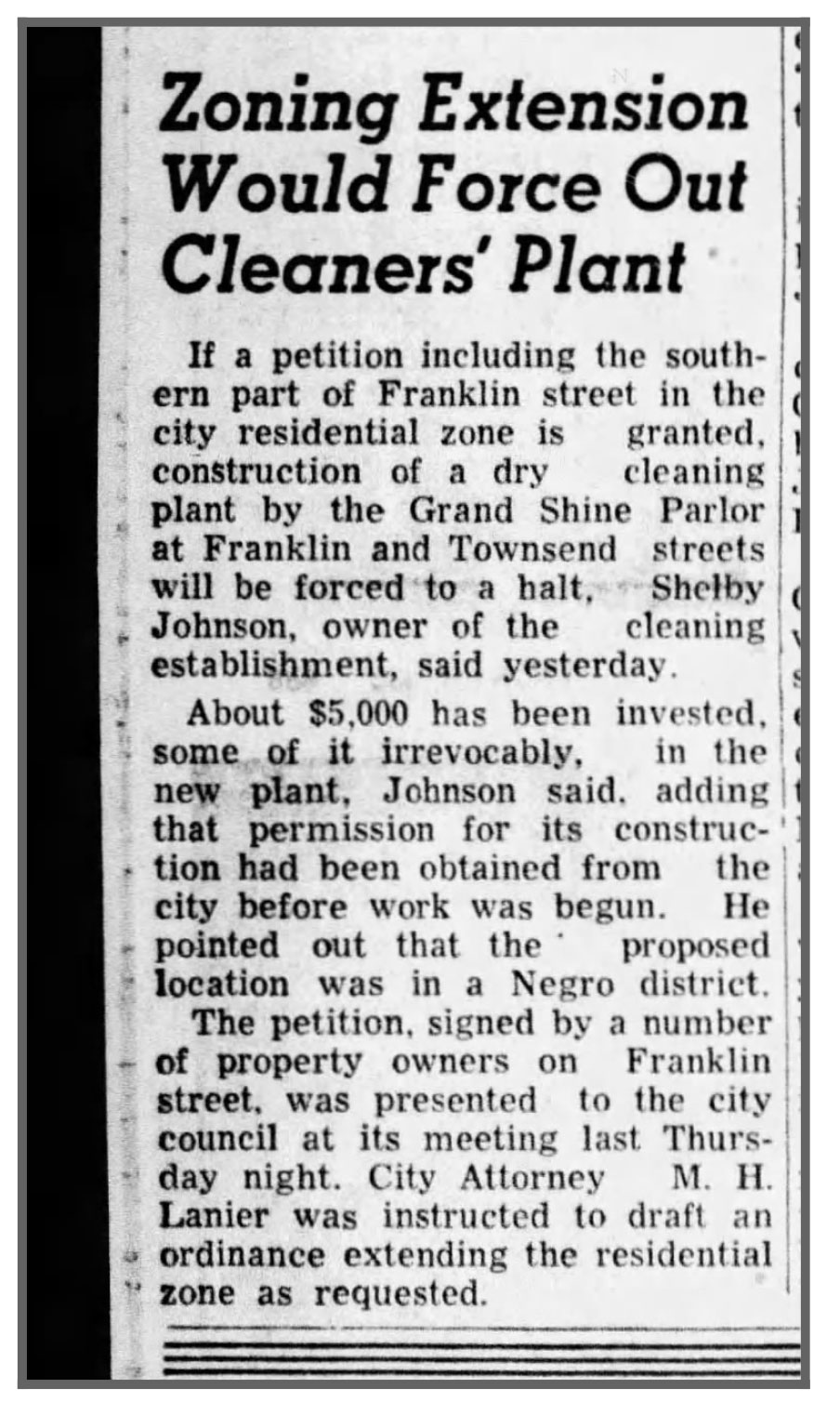
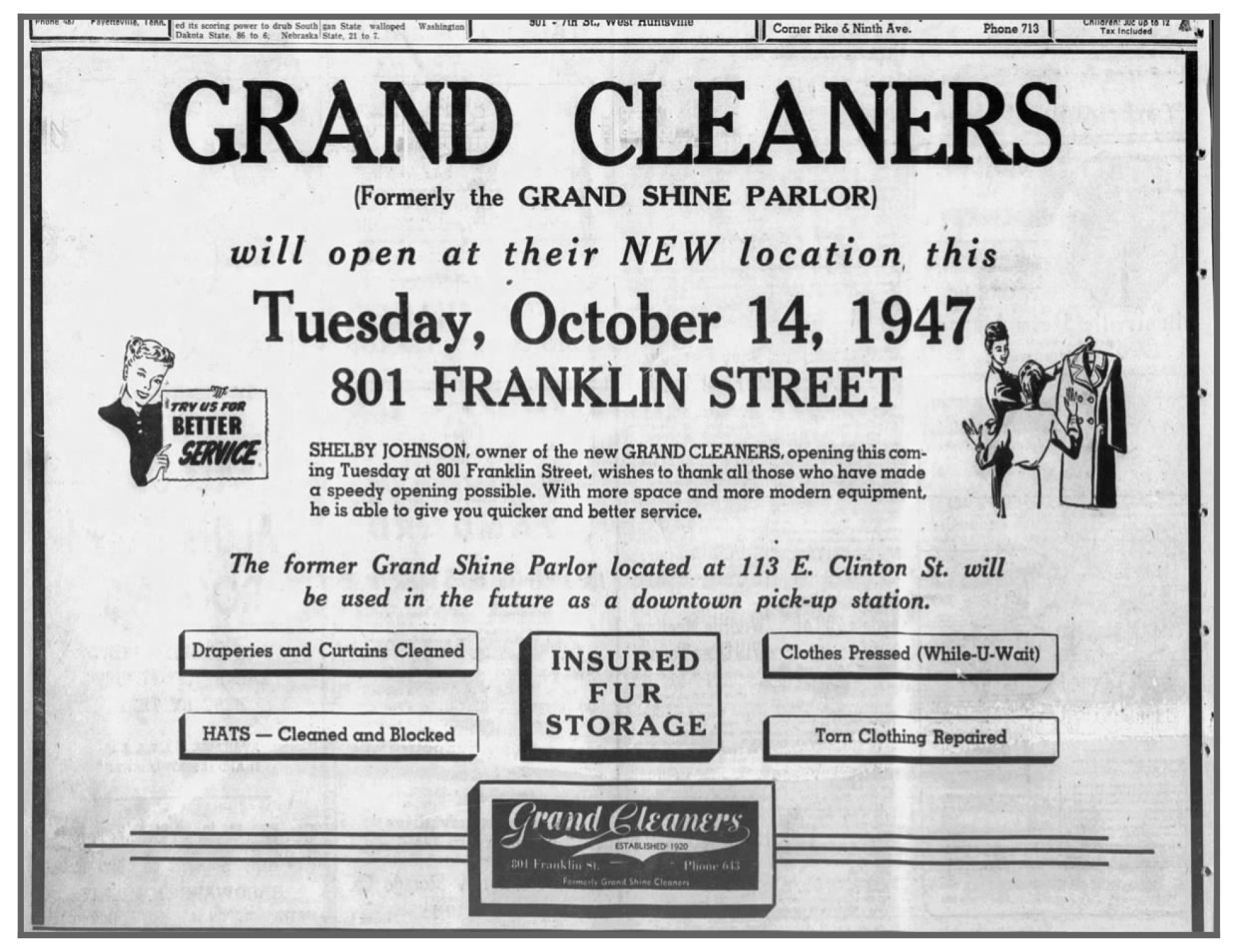
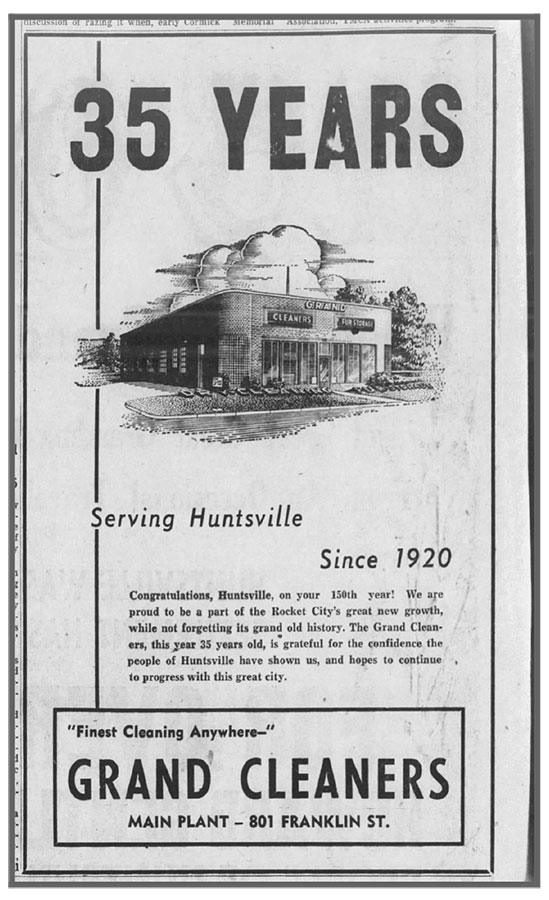

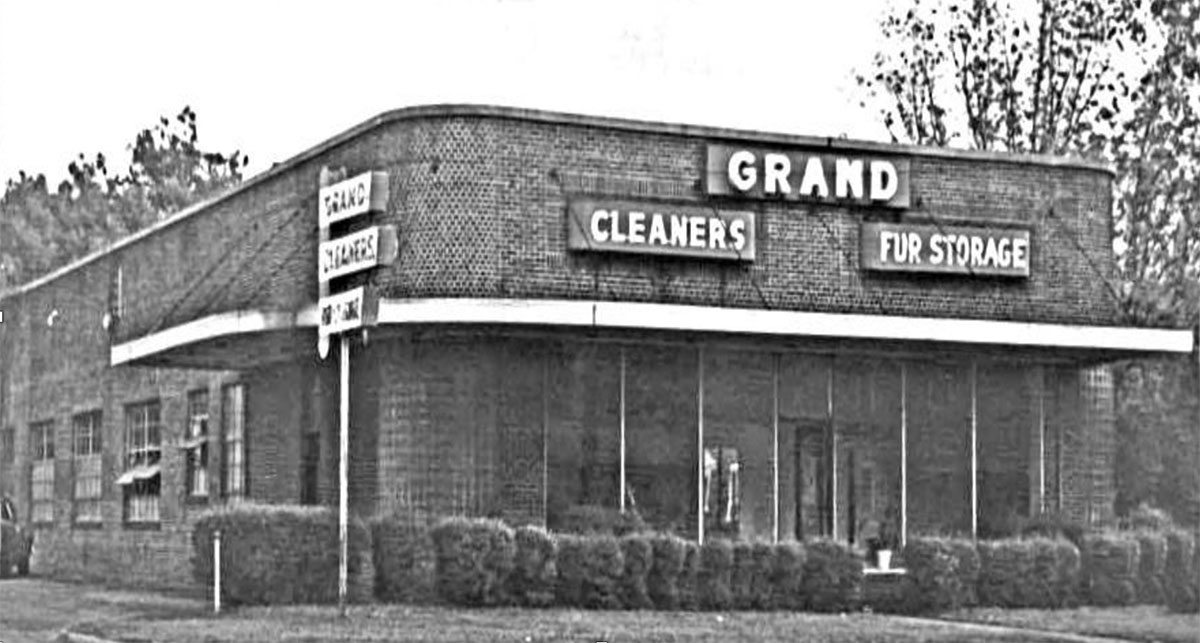
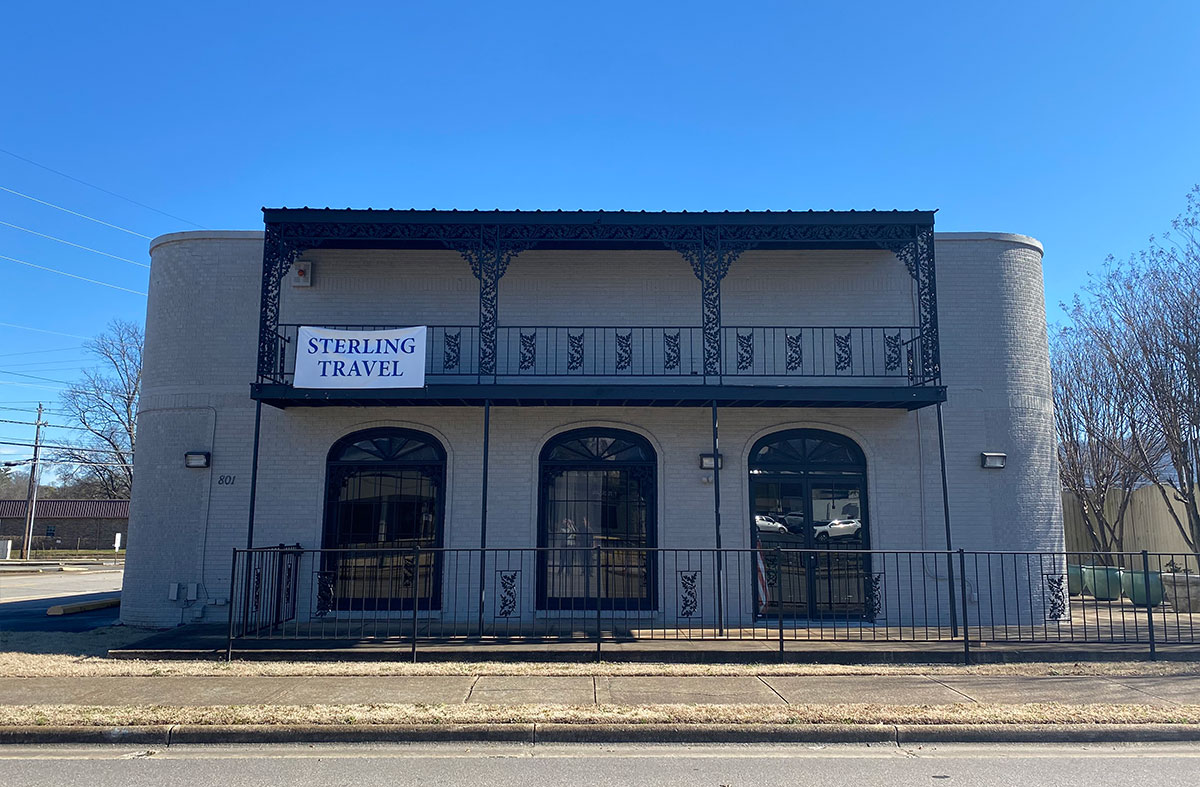
The Grand Cleaners building still stands today, as testament to the Johnsons and their desire for justice. Over the decades, the building has been a dress shop, a restaurant, a brewery, and is now home to a local travel agency and other businesses.

